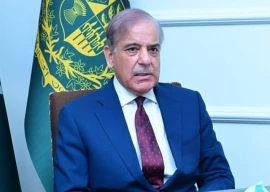
KABUL: Afghan President Ashraf Ghani on Tuesday nominated a female judge to sit on the Supreme Court in an unprecedented move that has angered some Islamic conservatives.
Anisa Rasouli, the head of the Afghan Women Judges Association and a former juvenile court judge, was the only female nominated to the nine-member bench after the announcement was delayed due to opposition by a group of Islamic conservatives earlier this month.
Read: Afghan woman puts the pedal to the metal for women's rights
"I'm proud to announce that for the very first time I have nominated a woman to the Supreme Court," Ghani told a gathering of diplomats and women's rights activists.
"Appointing a woman to the Supreme Court does not alter the judicial system. We do have full support of the Ulema (Islamic scholars) for it," he added.
The nomination, which requires approval by parliament, is part of efforts by Ghani's unity government to promote more women to high-profile positions since he and his Chief Executive Officer Abdullah Abdullah assumed office last September.
Under the constitution, Supreme Court judges have fixed ten-year terms. In April lawmakers approved Ghani's nominees for a number of cabinet positions, including four women.
The former academic and World Bank economist has already appointed two female governors for the provinces of Ghor and Daikundi, moves hailed by rights campaigners.
He also said Tuesday he wanted all ministries to appoint female deputy ministers.
But the moves have angered some influential Islamic scholars in the conservative country.
Earlier in June a group of clerics gathered in Kabul to protest at the possible appointment of a female judge to the Supreme Court.
Read: Afghan woman lynched over Quran-burning was innocent: minister
Under the 1996-2001 fundamentalist Taliban regime, women were banned from leaving their homes without a male chaperone and often denied basic rights such as an education.
Nearly 14 years after the Taliban were toppled by a US-led invasion, Afghan women have made giant strides -- with female lawmakers and security personnel now commonplace.
President Ghani's wife Rula stepped into the limelight during the presidential election last year and has been actively campaigning for women's rights since then.
But activists say there is a long way to go.
In March an Afghan woman was lynched by a mob after being falsely accused of burning a Koran, triggering protests around the country and drawing global attention.




















































COMMENTS
Comments are moderated and generally will be posted if they are on-topic and not abusive.
For more information, please see our Comments FAQ